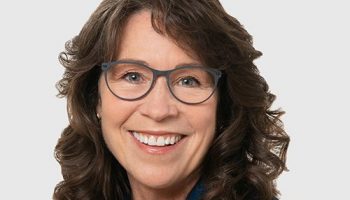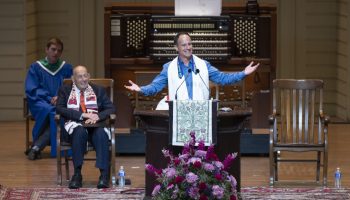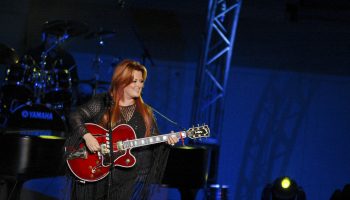NICK DANLAG – STAFF WRITER
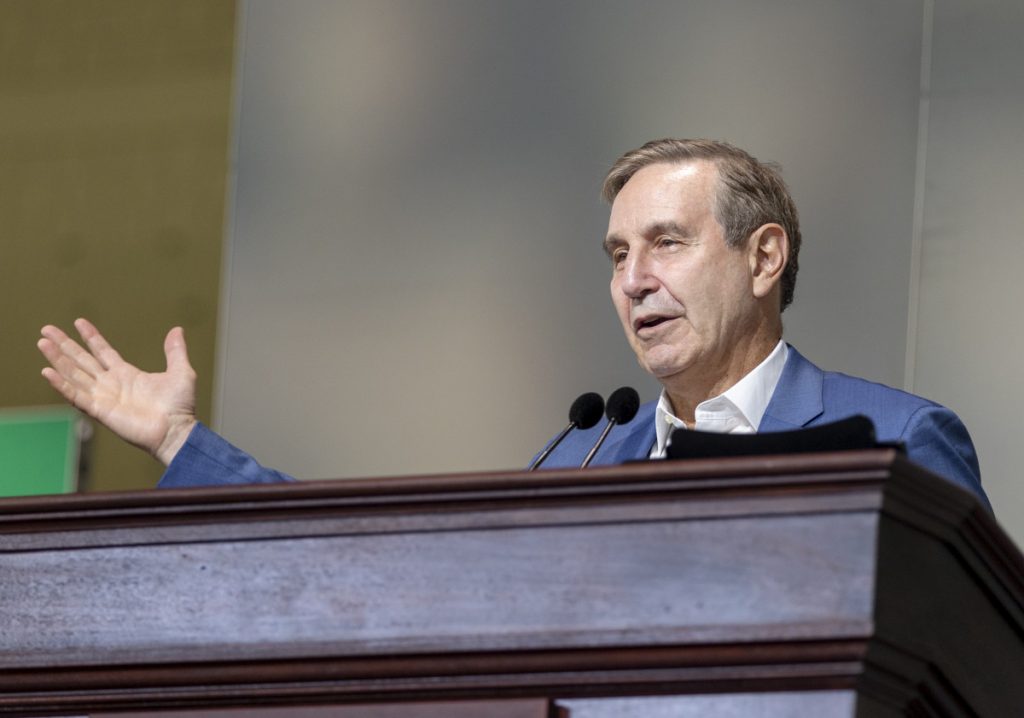
People’s trust can be viewed as a pyramid. Previously, said Richard Edelman, the government and those with power held the top as the most trusted. Now, it is flipped, as people turn more to those closest and share news articles with those in their political bubble.
So, Edelman, CEO of the global communications firm Edelman and the creator of the Edelman Trust Barometer, an annual survey of trust in government, business, media and nongovernmental organizations, said businesses are now more trusted than governments — even in addressing systemic racism, climate change and health care reform.
On the most recent Barometer, business is 40 points more trusted in competence and 20 points more trusted in ethics than government.
“When the pandemic hit, the way we all absorbed this was (asking) which institution can actually make a difference and save us from this horrible scourge a year ago — the government?” Edelman said. “Well, the government failed us. The government failed in terms of getting vaccines to us at the right times. The government failed in terms of living up to its halo.”
Though businesses are seeing a rise in trust, society as a whole is also becoming more fearful.
“Every generation has felt that they can do better than what their parents did. It’s not true anymore,” Edelman said. “Fears have eclipsed optimism. They’ve made hope disappear and the pandemic is actually accelerating fears in general.”
Edelman has been at the forefront of mapping trends of people’s trust through the last 20 years, heading the eponymous global communications firm that his father founded in 1952. During his lecture “Recommitting to Trust” at 10:30 a.m. on Monday, July 12 in the Amphitheater, Edelman illustrated trends in national trust in different institutions — such as business and media — opening up the Chautauqua Lecture Series Week Three theme of “Trust, Society and Democracy.”
There are five key factors to build trust: ability, dependability, integrity, purpose and sense of self. In recent years, ability has been deemed less important, going from 75% of what determines trust, to 25%.
“It’s the dependability part that is the big question mark,” Edelman said. “Can I rely on these people to do what they say? Can I actually believe that they have integrity of their soul, as opposed to the next quarter’s earnings? Do they have a purpose?”
The Great Recession helped spark this change.
“The Great Recession really showed how empty the promise was to the 13 million Americans who took subprime debt and lost their houses,” Edelman said.
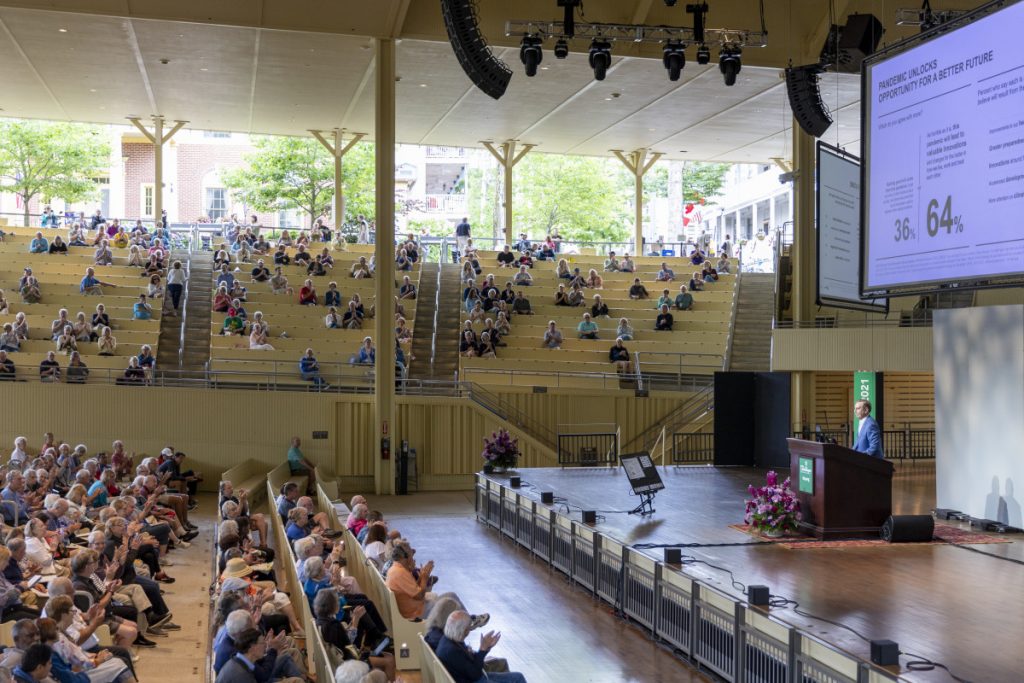
Many experts thought the economy would recover from the 2008 recession in three to four years, as it had from past recessions. Edelman said this wasn’t the case. Thirteen million people lost their homes, and the automobile industry took a large hit.
Edelman said the distrust in politicians shown during the Great Recession led to President Donald Trump’s election, showing that many voters were fed up with traditional politicians; and the Brexit referendum, that showed voters distrusted experts and were influenced by nationalist rhetoric.
The government is doing better than the media, however, in terms of trust — traditional media has the lowest score among all the institutions Edelman tracks, including government, business and NGOs. News organizations are facing a multipronged threat, including society’s heavy dependence and distrust of social media and many platforms’ “bubble-like” nature, meaning people only share articles with others that agree with them.
“The perception is that the media is biased, that it’s chasing clicks, that it’s desperately clinging for attention. That’s a dysfunctional relationship with its customer,” Edelman said. “It’s not really serving its customer. It’s serving its customer candy.”
To rebuild trust, Edelman said, people are going to have to be brave, speak their grievances, and admit they are wrong or don’t know all the answers. He also said that there is value in talking about uncomfortable history, such as the 1921 Tulsa Race Massacre. Edelman believes that stories like these should be taught in schools because acknowledging and sharing the truth is essential in repairing trust.
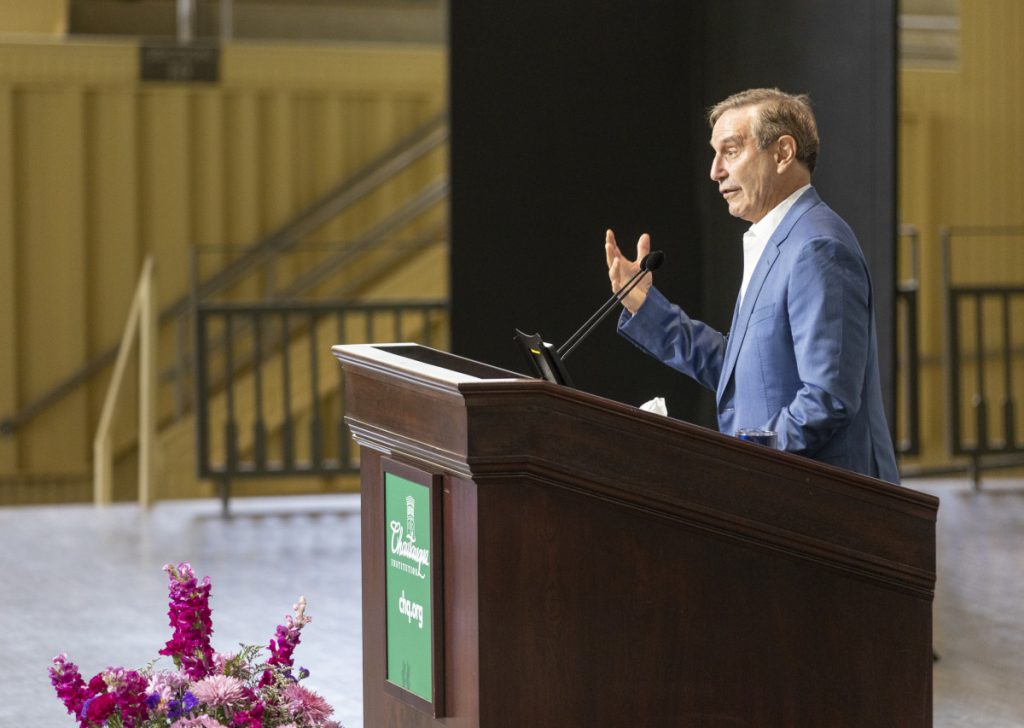
Edelman said he is an optimist by nature, and that two-thirds of people polled by the Barometer this year believe that the future will be better after COVID-19.
“Tomorrow demands trust,” Edelman said. “We have work to do to get there.”
During the subsequent Q-and-A session, Chautauqua Institution President Michael E. Hill asked why Edelman started the annual Trust Barometer.
Edelman said it became apparent that a marker of trust was needed. He said he saw shifts in trust throughout the country during U.S. globalization in the ’90s, and later during the Iraq War and Great Recession.
“A lot of our illusions have been smashed, and we demand answers,” Edelman said. “Well, we should.”
Hill asked how people can move away from tribal impulses.
“I just think we need to have a bit more bravery,” Edelman said, “and stop going to our little opinion bubbles, and stop being self-referential and recognize that the other side probably has some valid points.”
He also stressed the importance of listening, especially from those in power.
“We should listen more and not just talk,” Edelman said. “The more senior we are, the more we should listen.”


